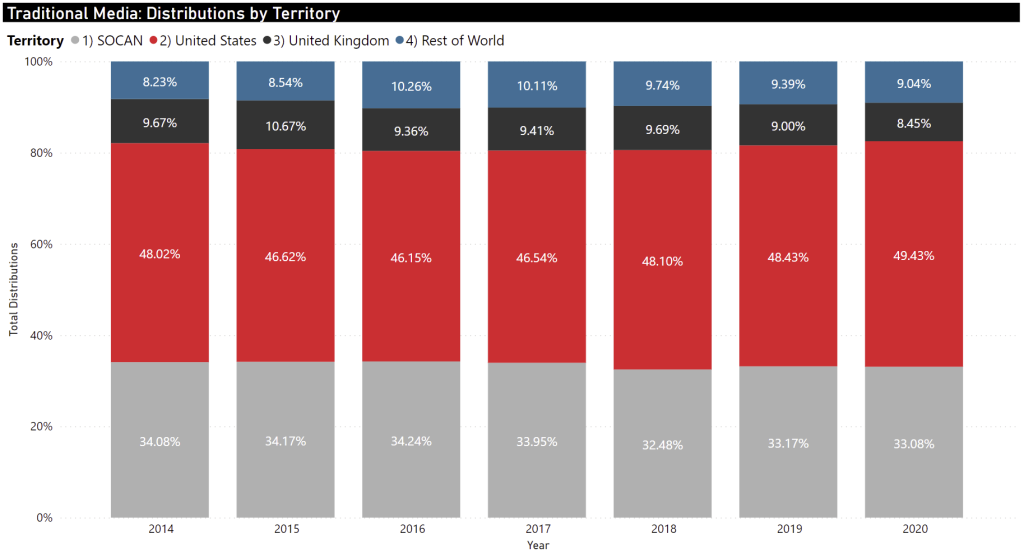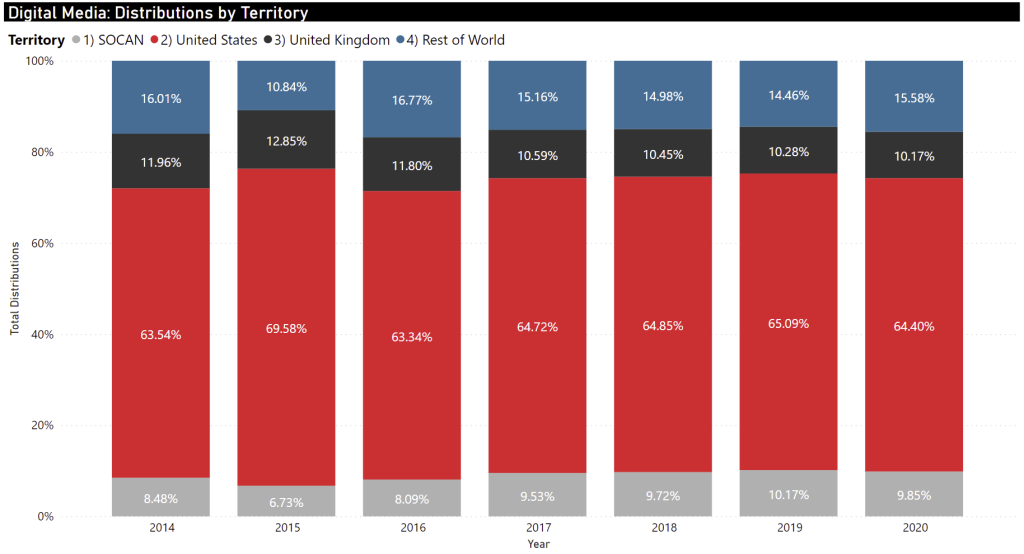Current broadcasting laws and regulations were designed for radio and television. While these rules have been effective, foreign digital platforms have zero obligations to support and promote Canadian creators, even to Canadian audiences. Reforming the Broadcasting Act is a necessary step to strengthening Canadian songwriters and composers’ place within Canada and supporting Canadian music in a digital world.
This article continues to explain SOCAN’s advocacy efforts to reform the Broadcasting Act. The three previous articles in this series can be read here, and here, and here.
In this series, we’ve looked at SOCAN’s aggregated collections and distributions data for performing rights to identify trends and discrepancies between traditional broadcasters and digital broadcasters. Although SOCAN also represents reproduction rights and the rights of visual artists, we’ve focused on performing rights royalties for musical works because this is our largest data set.
SOCAN processes billions of performances every month of every year, and licenses tens of thousands of businesses across Canada, including television, radio, digital broadcasters, as well as live concerts, restaurants, nightclubs, fitness classes, and other businesses. This series provides a glimpse into a specific sector (performing rights) for a specific subset of participants (songwriters and composers).
Because of this focus, this report cannot speak for the entire music industry, nor can it speak to the total income received by a songwriter or composer. However, performing rights royalties are a good proxy to reflect trends in Canada, and based on our data, the developments affecting Canadian songwriters and composers is sobering.
To summarize our findings:
- Canadian songwriters and composers receive less money from digital broadcasters than from traditional broadcasters.
- Digital broadcasters will soon be the top source of revenue for Canadian songwriters and composers.
- If regulations for digital broadcasters increased the use of Canadian musical works, millions of dollars from these digital giants will stay in the Canadian economy.
If distributions are lower to Canadian songwriters and composers from digital broadcasters, then where is that lost money going?
When comparing the territorial distributions from traditional broadcasters as compared to digital broadcasters, we see a marked increase in distributions going to the United States from digital broadcasters.
For traditional broadcasters, around 49 cents of every dollar collected goes to the United States But for digital broadcasters this increases 31% to 64 cents of every dollar collected going to the United States:


Keeping the current broadcasting regulatory structure means that the benefits from the digital transition flow to creators in the United States, rather than supporting Canadian creators. It’s worth reflecting that one of the main purposes of the Broadcasting Act is to encourage the development of Canadian expression and provide programming that reflects Canada. This policy has been successful for traditional broadcasters, and we urge the government to extend this policy to digital broadcasters, to ensure a thriving Canadian cultural sector in the future.
We hope that this series of articles presents a logical and compelling case, with irrefutable fact-based evidence indicating a serious problem that will only get worse if the Broadcasting Act isn’t brought up to date with the digital era.
Canadian music, our culture and identity as a country, and a significant part of our national, provincial, and local economies depend on it.